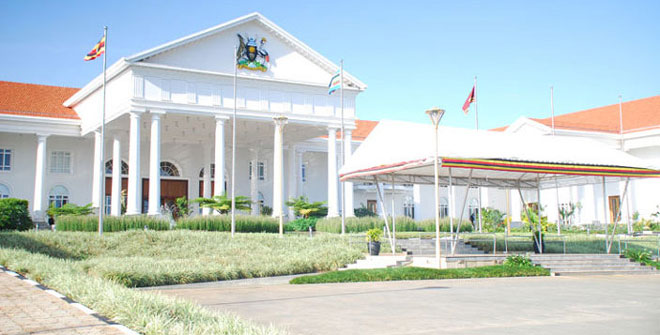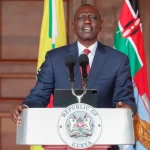President Yoweri Museveni has consistently emphasized the fight against corruption in his annual speeches. Despite the existence of various Anti-Corruption agencies in the country, the results seem to fall short of expectations.
In addition to the Inspectorate of Government (IG), a constitutional body dedicated to combating corruption, the State House Anti-Corruption Unit (SHAU) and State House Investors Protection Unit have been established.
These entities collaborate with the Crime Intelligence and Investigations Directorate (CIID) of the Uganda Police and the Office of the Director of Public Prosecution (ODPP) to investigate and prosecute public officials accused of corruption.

Nevertheless, lawmakers remain dissatisfied with the perceived ineffectiveness of the diverse anti-corruption agencies in eliminating corruption within the public sector.
During a meeting with the House Committee on Presidential Affairs regarding the 2024/25 national budget framework paper, Robert Kasolo, MP for Ik-Ik County, conveyed his discontent to State House officials.

He questioned the justification for continued funding of these agencies with taxpayers’ money when corruption continues to persist and even escalate.
“There are many monitoring Units that have been put in place by President Museveni, and much as the President has put in place all those bodies, corruption is increasing day by day, and the President keeps lamenting. As we appropriate money, there must be accountability for money. Why is corruption increasing when these bodies are there? How can they account for the money?” remarked Kasolo.
Jim Muhwezi, Minister of Security, who had led the team from State House in his response, blamed the rampant corruption in Uganda on the refusal by witnesses to testify in court against corrupt suspects, saying many people only lament about the corruption but refuse to report corruption cases.
“I think this government has fought corruption going by the many institutions that are in place and the statutory ones like Police, Inspectorate of Government, and Anti-Corruption Units, and there are so many, and they are all working. The only problem is that the vice is rampant and widespread. During investigations, we face a problem when people report about corruption, but they don’t want to testify in court, so it becomes a problem,” said Muhwezi.
“But otherwise, there is also a problem, people say like we are all saying, and when you say, come and tell me and let us go and arrest, they say, let this not be from me there is corruption let it not be from me. This corruption isn’t by public officers; as you know, even in our private engagements with society, people are corrupt. You give them work, and they steal. So there is a vice, it is a disease, it needs to be fought broadly,” added Muhwezi.
However, Rose Obigah, Terego District Woman MP, was dissatisfied with the response given by Minister Muhwezi and asked officials from State House to stop massaging corruption, saying that if it requires Uganda to adopt punitive punishments like killing people found guilty of corruption through the firing squad, then that should be adopted.
“I need punitive action on corruption; if we are just going to continue massaging corruption, I am telling you, we are just going to continue facing embarrassment. There is too much corruption; what can we do together? We need something punitive, no more talking, even if it means firing squad. I think I will go for that. It is too much; it is bothering us day and night,” she said.
The development comes at the time the Inspectorate of Government revealed in September 2023 that between January 2022 and June 2023, only UGX 7.99 billion was recovered from corrupt officials, despite the entity’s own report indicating that Uganda loses about UGX 10 trillion annually to corruption.
According to Transparency International, Uganda is ranked 142 out of 180 territories in the global corruption perception index, only beating the Democratic Republic of Congo (DRC) whose ranking stands at 166.
State House Budget
In the 2024/24 national budget, the State House has been allocated UGX 421.923 billion, of which UGX 25.232 billion would be spent on wages, UGX 374.969 billion would be spent on recurrent expenditures and only UGX 21.722 billion is planned for development.
State House is also seeking for UGX 57.14 billion to buy security, household items and vehicles for the presidency, although only UGX 21.722 billion has been allocated in the 2024/25 national budget, thus leaving the Presidency with a funding gap of UGX 35.418 billion.
Jane Barekye, State House Comptroller, provided a breakdown of this expenditure, indicating that UGX 14.401 billion will go towards the continuation of the process of refurbishing Entebbe State House while UGX13.468 billion is planned for the procurement of some security equipment.
Barekye also revealed that the State House is also seeking UGX 6.549 billion to procure vehicles for the President as well as another UGX 8 billion for travel abroad.
She argued that although there was a freeze in the item following a cabinet decision, the President’s external engagements are crucial and the funds are also needed to carry out the mandatory maintenance of the presidential jet and helicopter.
As has been a permanent fixture in the budget, the President also plans to make donations to Ugandans. Therefore, the State House is seeking an additional UGX 30 billion for donations next financial year.
“As a chief mobiliser, the President and Vice President are engaged in the mobilisation of the masses. State House operates a fleet of both support and armoured vehicles together with the Presidential jet and helicopter. A huge percentage of the fleet is ageing and needs replacement. There is also a need to replace the helicopter engine and the upholstery within the jet,” said Barekye.
The State House Comptroller also informed the Committee that there is a need for UGX 16.986 billion for staff UGX 4.2 billion is required for recruitment of new staff to fill vacant positions.
“However, as a cost-saving measure, staff are paid an out-of-pocket allowance and not paid per Diem for the field operations. In lieu of the per diem, the staff is paid a monthly consolidated package. Given the increasing numbers of both regular staff and SFC who are paid a food basket allowance, the item has a shortfall of UGX 16.986 billion,” she said.








